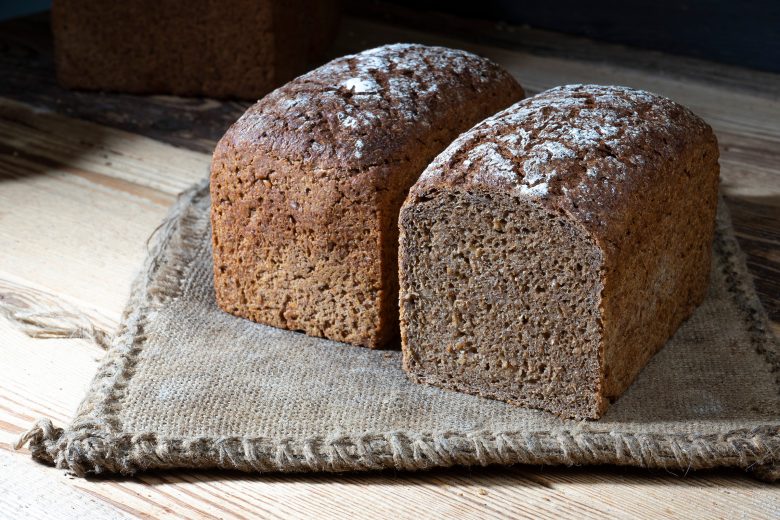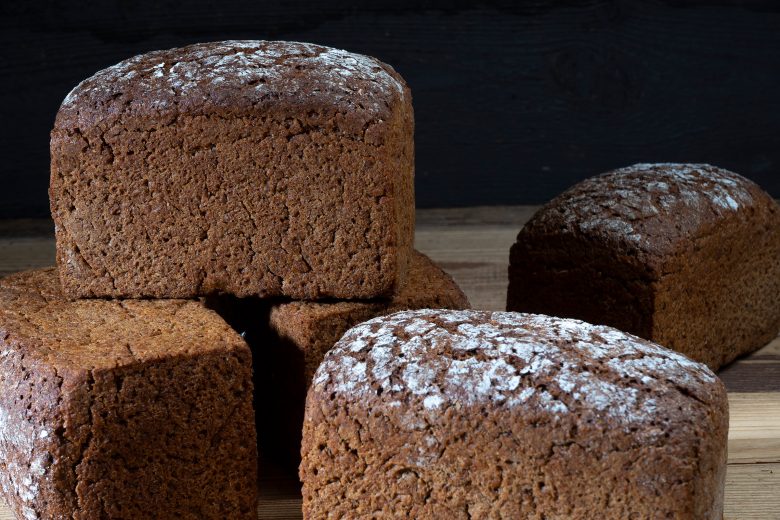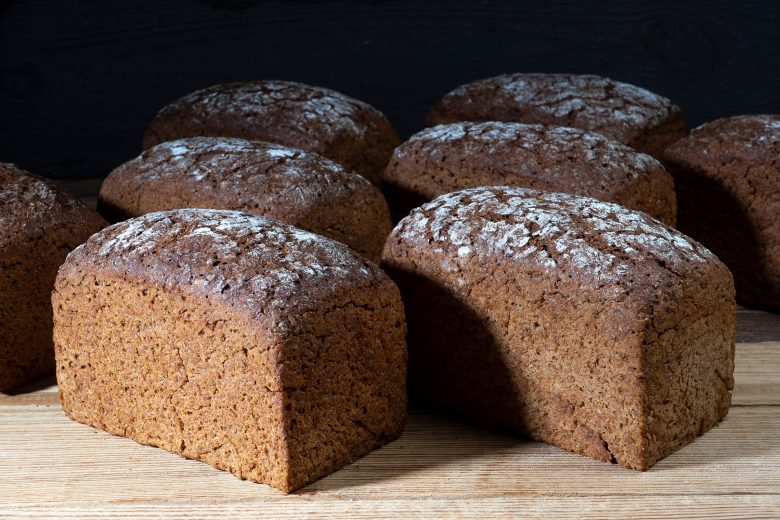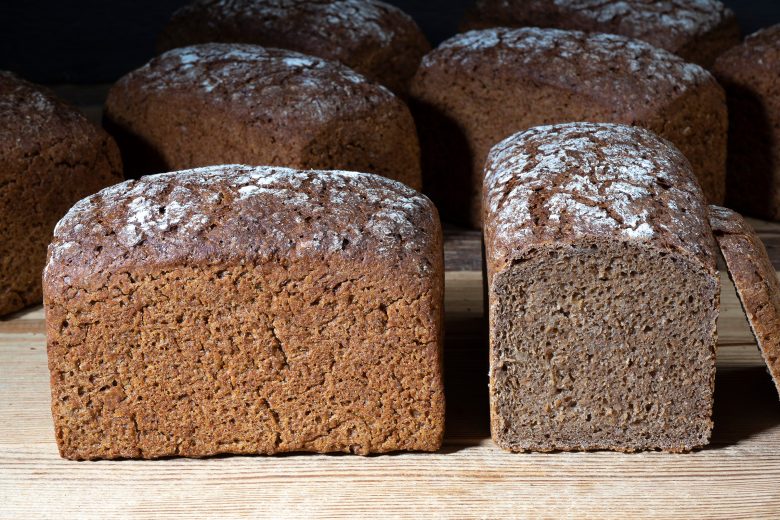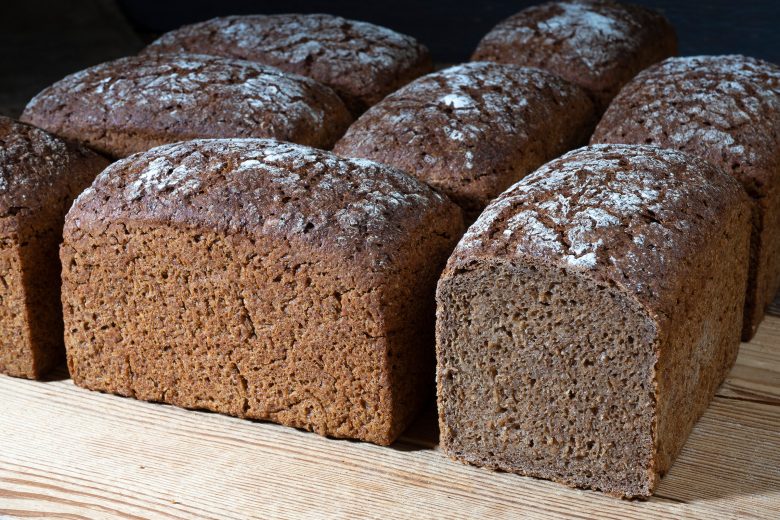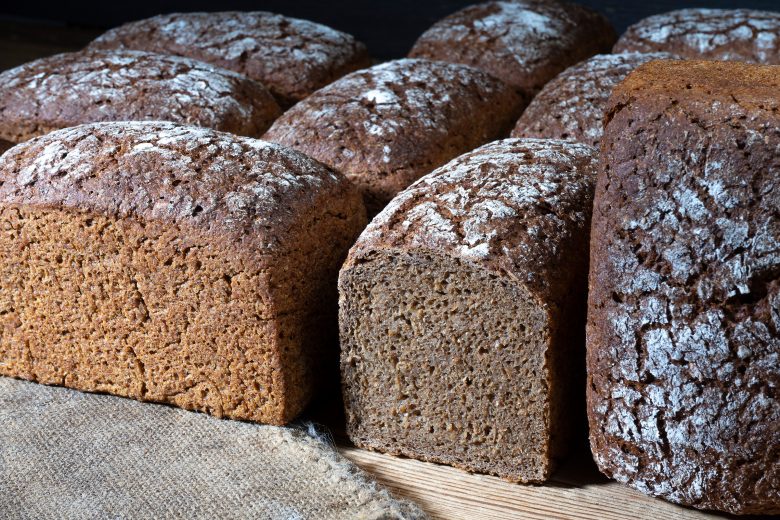Rye Grain
The last posts were dedicated to wholegrain lovers and are coming to an end. Now a short summary of how to bake good wholegrain breads:
- The finer the grind of whole wheat flour, the larger the bread volume.
- The coarser the wholegrain meal, the milder the bread taste.
- Enzyme weak wholegrain rye flours are better suited to wholegrain bread baking.
- The total salt amount can be added to the scald or soaker. The salt content con be reduced to 1.5% of the total flour amount with wholegrain breads.
- With too warm of a scald preparation the danger of extraneous fermentation goes up- therefore the addition of salt is recommended.
- Some reference books recommend adding a small amount of vinegar to the soaker, but this affects the pure taste of the sourdough. Whole wheat baked goods made without sourdough, in particular tend to have a dry and straw-like crumb. Because of this a yeast pre-dough is recommended for premium baked goods in addition to the soaker. If stored for more than 8 hours, the soaker (without salt) must be stored in the refrigerator.
- Scalds are better for taste and shelf-life! This is because of the higher temperature and shorter standing time of 4 hours. They are also less susceptible to extraneous fermentation and significantly improve the taste of the bread by the formation of dextrins. Another advantage of using a scald is in the bread production- the temperature of the scald makes it easier to reach the desired liquid temperature in the dough.
- The addition of dried, roasted and finely ground leftover bread improves water absorption in soakers and scalds. Crumb binding and bread taste are both positively influenced.
- Anyone who is new to wholemeal bread production is advised to do a 1-step sourdough process (standing time overnight)! The degree of acidity increases with the degree of fineness of the grind, in that the degree of acidity of wholemeal flours and extra-fine coarse meal is almost twice as high.
- A mixture of coarse, medium and fine meal can be used to influence the desired properties of “ripeness, acidity and taste” when making sourdough.
- Wholegrain sourdoughs that are made with coarse meal must be intensively kneaded and beaten for a long time (20-25 minutes). The slimy substances released improve the binding in the main dough and therefore the crumb elasticity of the bread. CAUTION: If starter is taken from coarse wholegrain sourdough, the souring property is reduced and is therefore not recommended (max. 2-3 times).
- With recipes containing coarse and fine meals it is recommended to build the sourdough with the coarse meal and to use the fine meal in the main dough.
- In principle, different kneading times apply to wholegrain and wholemeal dough production – the lower limit of the kneading time is 10-15. The so-called gluten structure does not build up during the kneading process; long mixing times of 20 minutes are an advantage.
- Gradual addition of water leads to a better result. Knead firmly in the initial phase and only add water after 15 minutes. If the gluten structure of whole wheat and spelt grains should tear, let the dough rest accordingly and fold it twice to achieve a satisfactory result.
- With wholegrain spelt products, increase the water absorption to the maximum.
- Reduce the baking temperatures for wholegrain breads to 220°C; increase the baking time accordingly.
Recipe
for a dough weight of 1925g / 3 pieces, each 642g
Total Recipe
| 400g | Fine Rye Meal | 40% |
| 200g | Medium Rye Meal | 20% |
| 200g | Wholegrain Flour | 20% |
| 200g | Rye Flakes | 20% |
| 850g | Water | 85% |
| 20g | Bread crumbs, toasted and finely ground | 2% |
| 15g | Salt | 1,5% |
Sourdough
| 200g | Medium Rye Meal |
| 200g | Fine Rye Meal |
| 400g | Water |
| 40g | Starter |
Dissolve the starter in water (35-40°C) and mix with the medium & fine meals in the kneader for 10 minutes. Afterwards, cover and let ripen for 15 hours at room temperature.
Scald
| 200g | Rye Flakes |
| 20g | Breadcrumbs (toasted & finely ground) |
| 15g | Salt |
| 400g | Water (100°C) |
Mix the rye flakes with the bread crumbs and salt then cover with the boiling water. Briefly mix, then cover and allow to oak for 3-4 hours.
Main Dough
| 840g | Mature Sourdough |
| 570g | cooled Scald |
| 200g | Fine Rye Meal |
| 200g | Wholegrain Rye Flour |
| 100g | Water (approx.!) |
Production
- Knead all ingredients together except for water (only add water if the dough cannot be mixed properly!). In this state, the kneading machine mixes for 15 minutes.
- Only after the 15 minutes is water added to adjust the firmness of the dough. Should the 100g of water not be enough, you can add more.
- Total mixing time approx. 25 minutes.
- After mixing the dough gets a 30-45 minute rest.
- Then divide into the desired sizes, form into rounds and then roll lengthwise.
- When fully proofed (approx. 50-60 minutes), place in a 230°C oven with steam. After 5-6 minutes release the steam and reduce the baking temperature to 185-190°C
- Total bake time about 80-90 minutes.
INFO: you can increase to amount of dried breadcrumbs at will – just adjust the amount of water! I also went without spices in order to be able to better perceive the pure taste of the whole grain.


